Back to good ol’ times
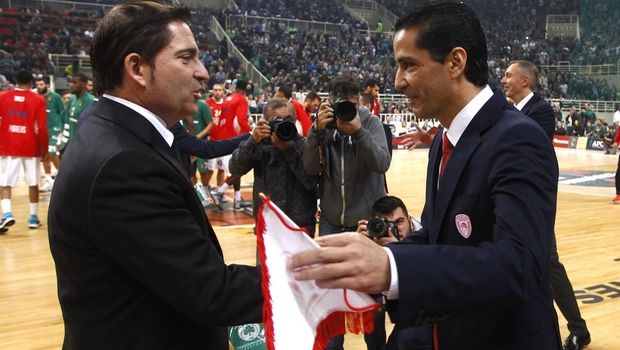
Back to good ol’ times
By Jim Conway on 10 April 2017
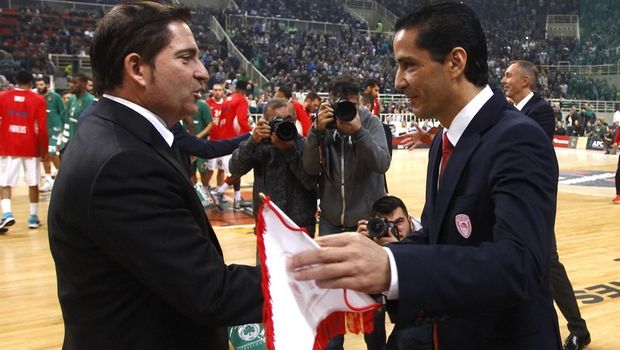
The Greeks do it again! Olympiacos and Panathinaikos got the home court advantage and the road to Istanbul is through Greece. Hoopfellas assesses the finishing of the two “eternals” before the “drums of war” are sounded..
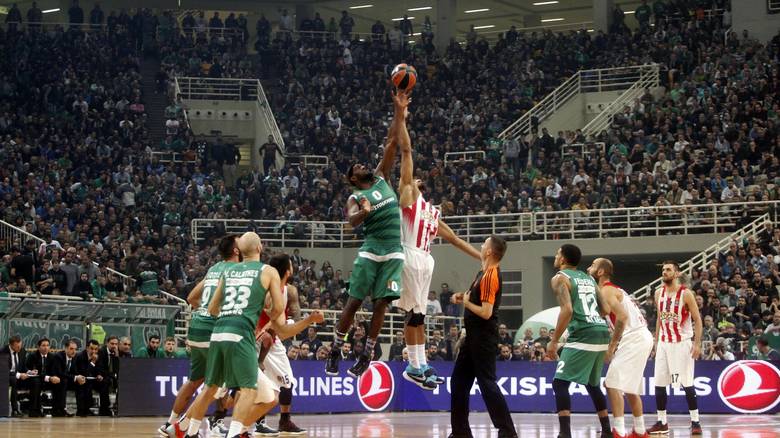
So, it’s back to good ol’ times! The Euroleague Regular Season is now behind us and the scenery has been set as if it is drawn from the pages of a history book. Olympiacos and Panathinaikos (19-11 record for both) are against the Turkish “elite”, Anadolu and Fenerbahce, with the Istanbul F4 on the line. I know, I know… This week will not go by and anticipation will be high. Baskonia’s loss (they wanted it, but they just couldn’t do it that night) sent Perasovic’s Anadolu on Olympiacos, in a great match up that will be very interesting, and turned OAKA into the … centre of the Earth for every basketball fan, as the Panathinaikos-Fenerbahce series will be the centre of attention. The match ups and what really… is going on in each of them apart from the surrounding atmosphere will of course be the subject of a next post before the start of the playoffs like we do every year. Let’s take a look …
American Sniper
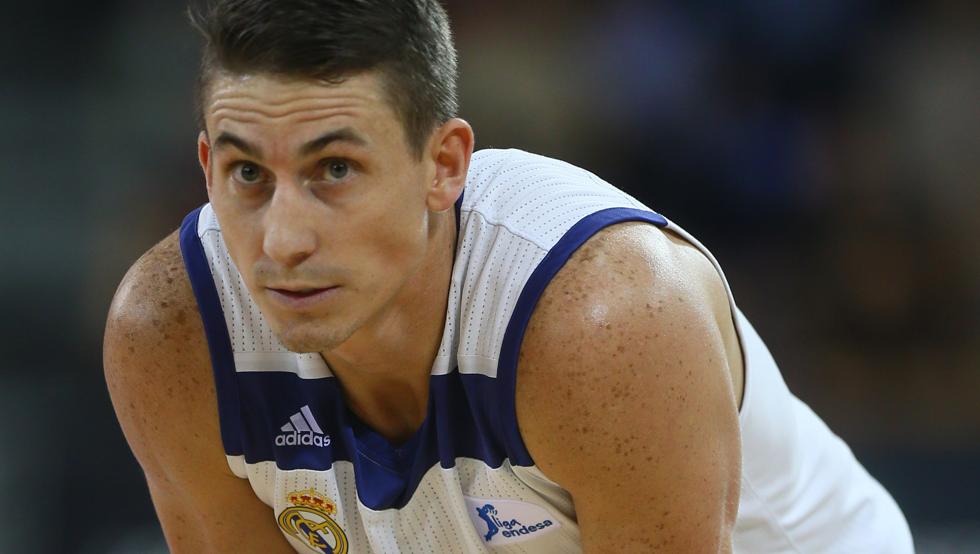
I admit, I have a weak spot for Jaycee Carol and the charm his aggressiveness produces, keeping the defense on its toes. The way he executes after a screen (basically the entire process that starts with him losing his opponent) is poetry put to human motion. I have the feeling that Anadolu had a better chance to win the match just before the final minutes, when the Mormon started his streak of three pointers (especially against a defender like Granger, even though when Carol is “there”, it doesn’t really matter) that was the decisive factor for the game.
I find this execution as impressive as an explosive dunk or a chasedown block. Carol is a great asset for Madrid now, at the final stage of the season, where the character “I shoot the ball and take a nap on the way” (no fear) has made him a clutch player and has added to this clutch backcourt Laso has put together. …
Safe situations as a means for returning to good basketball
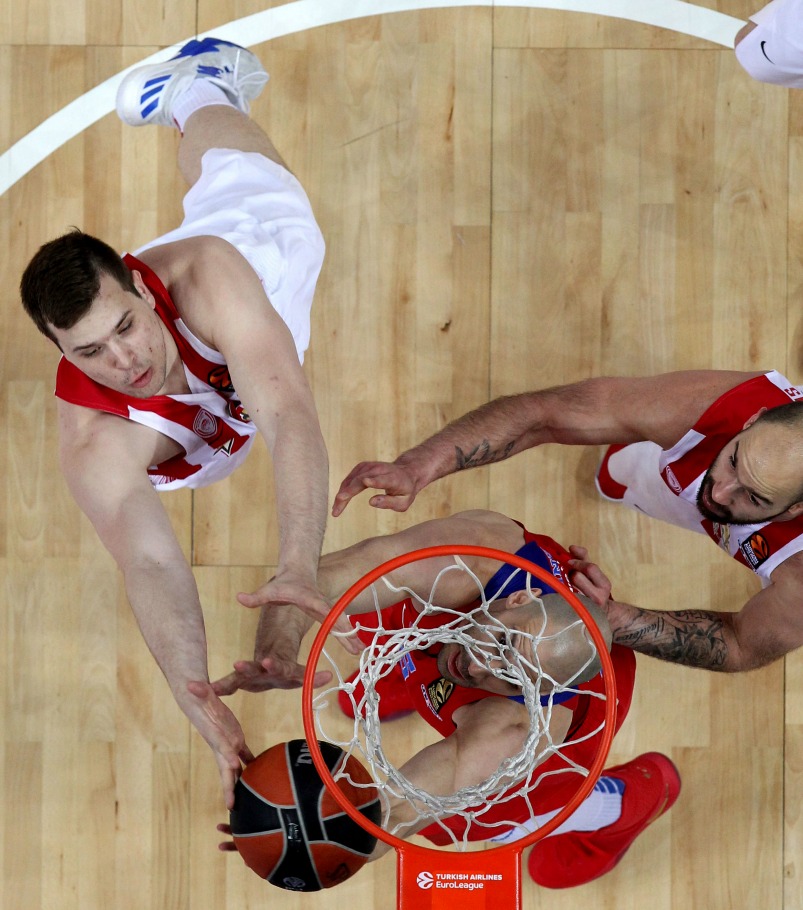
The regular season finish finds Olympiacos in a process where the team tries to return to good basketball. The Reds closed the regular season with a 1-4 record in the last 5 matches and the injury of a key player in Lojeski; they are trying to bring Spanoulis back to his standards and at the same time find alternatives to the pressure of reforming the rotation that is required by the situation they are in. Coach Sfairopoulos was smart to try to evaluate these days what he has in his hands and went deep in his bench trying things, with his mind not only in the final games of the regular season, but also next year. What we are seeing lately at Piraeus is directly linked to the evolutionary course of the team with an eye on the next season.
Can Milutinov be a first/second (in comparison to second/third) centre in the new season? Are there any wing-skills in the pair of Papanikolaou-Papapetrou (this is directly linked to the Lojeski issue…)?
How much actual time will Agravanis need to mentally mature? Is the pace by which this happens could be faster for a player that could be playing like this two years ago…?
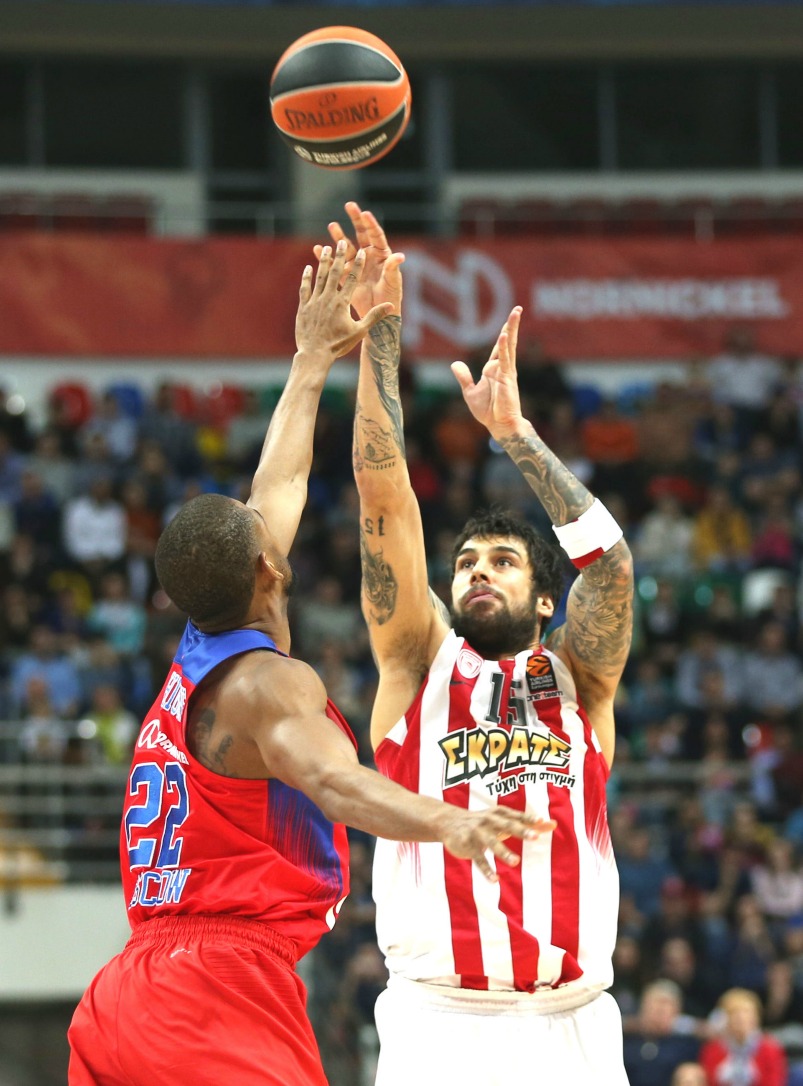
It is possible that Olympiacos will need an extra player in the series against Anadolu. A player that will come from behind, be the X-factor; a player that will bring a new variable into the equation the opponent will try to solve and change the course of the series. The way things are now in the roster, this would be a good opportunity for Waters, however it is still questionable whether the 31 year old PG (he only played 5 minutes in Moscow in a game where Green was absent) is able to step up, as his performance has not been that good lately. In total, Olympiacos has to decide and rely on situations that are safe for them (at formation or playbook level) and start to properly execute these small things again. The certainties that have become objectives.
In Moscow
The last game against CSKA was a sight for sore eyes for the Reds, given that their main objective was to be competitive in a match against the European Champions and, at the same time, return to playing good basketball, which is very important, as we are closing in on the playoffs.
I liked Olympiacos at Moscow. They played well after a long time, even though they are not quite where they want in order to start a playoff series and be fully prepared (they went to Russia without their two best shooters, which affected their game in many levels). I hope that the mental toughness-this team’s trademark for years- and their knowledge of the way (Olympiacos know how to play and manage themselves under pressure) may be a wakeup call for the Reds. This site has pointed out that the mental part and management of emotions in such a series, which requires constant battles and changes in the internal world of each team, are probably the most important factors, even more important than tactical issues. We will have a look at these matters within the week.
Giannis Sfairopoulos has probably locked in his mind the image of Olympiacos in the beginning of the season, where that well-trained team with their strongest point being Spanoulis’ stamina and playmaking was excellent in running the court (especially in home games) and was able to produce in the open court. A few months later things have changed and Olympiacos is trying to adjust to these “changes”. In Moscow we saw the Reds try to put the ball in transition offense with Spanoulis dribbling, as he is the most agile player to create fast breaks, which helped their offense operate, especially in secondary fast breaks. Olympiacos created more chances from what their production in the open court may show.
Heaven and Hell: the rotation in the “5” position
Realistically, it is not easy for Olympiacos to go back to what we described. This doesn’t mean, however, that they have a lesser chance to reach their objectives in their game, but rather, that they have to do it through another way. Hackett’s absence (a player, who apart from his leadership provided some serious aggressiveness on defense and gave a rough nature to the Reds defense, and provided much better conditions for the open court through the immediate conversion of defense into offense), Lojeski’s recent injury and Birch’s off-form are three major factors for their difficulty to go back. The “5” position rotation (three players, whose status is quite close) showcased the excellent Milutinov, but (with the expectation of Young’s “return” bordering obsession) adversely affected the strongest asset the team had-based on the way they play- Birch. The Canadian is off-form and this has affected the entire team. He is no longer the rock-solid player he used to be on defense, he conceded points in one-on-one (which was short of a joke up until February), he loses battles away from the ball and his morale seems to be low. Olympiacos got the best big man defender of this season, and it is this player’s “return” they must focus on, in order to match Anadolu’s frontcourt.
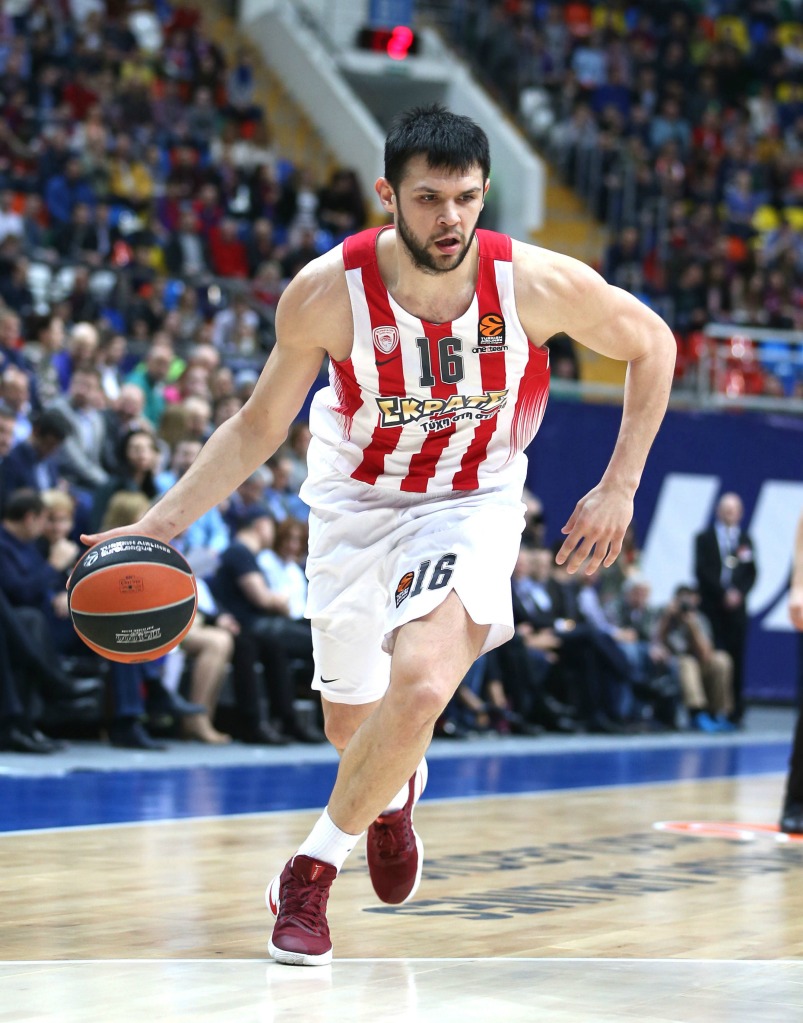
In Moscow, both teams read the opponent defense and executed with discipline on good situations for their offense. Coach Sfairopoulos used Mantzaris (his re-connection with the basket is one of the good points of that game) as a high screener, in order to get Teodosic to “switch”, with his intention being to play on him. Coach Itoudis chose to “switch the switch” with Teodosic (when the rolling big man would lock him) to switch with the weak side wing quicker in his offense (after the screen, as soon as the big man would turn and face the basket) especially if he had either Green or Lojeski at his disposal.
The formation with Papapetrou-Papanikolaou on the wings has been used lately by the Reds coach and this gives Olympiacos an advantage on defense. On offense, this formation calls for a dominant playmaker on the “1” position (such as Teodosic, Heurtel, Spanoulis), who will handle the ball, and motion away from the ball by the rest of the players. CSKA has played this in the past, when they had several quality forwards. I think that for a good defense with a good level, this unit may be easily read in the way it attacks, on the other hand, this formation (maybe even with Mantzaris on “1”) could be the weapon the Greek team will use to lower the succesful shots of the opponents and try to establish a certain situation on the court. So, proper management, depending on the objective of the next minutes, this is the key for every formation.
Both defences made mistakes. Olympiacos had moments where they concentrated on the ball too much, not being focused on what was going on away from it (they conceded 1-2 flares), as a result of the “Bear”’s stars being on the court. CSKA sometimes overhelped, especially when the ball was in the low post and underestimated their opponents’ ability to execute from behind the arc. The Achilles’ heel, however, of the European Champions was their turnovers, as they had 20 in total in this game. The Greek defense, which improved after the first few minutes, lead to some of these turnovers, although some of them were without pressure, in the space of a pass. The game was finally decided by the calculating monk “Rasputin”, Milos Teodosic (and the team’s excellent percentage from the free throw line), despite a great effort by the Reds and Papapetrou’s clutch plays. However, it is important that Olympiacos showed that they can match CSKA. With an eye on the series that starts next week, as well as the semi-final of 19th May…
The “new face of the organisation”…?
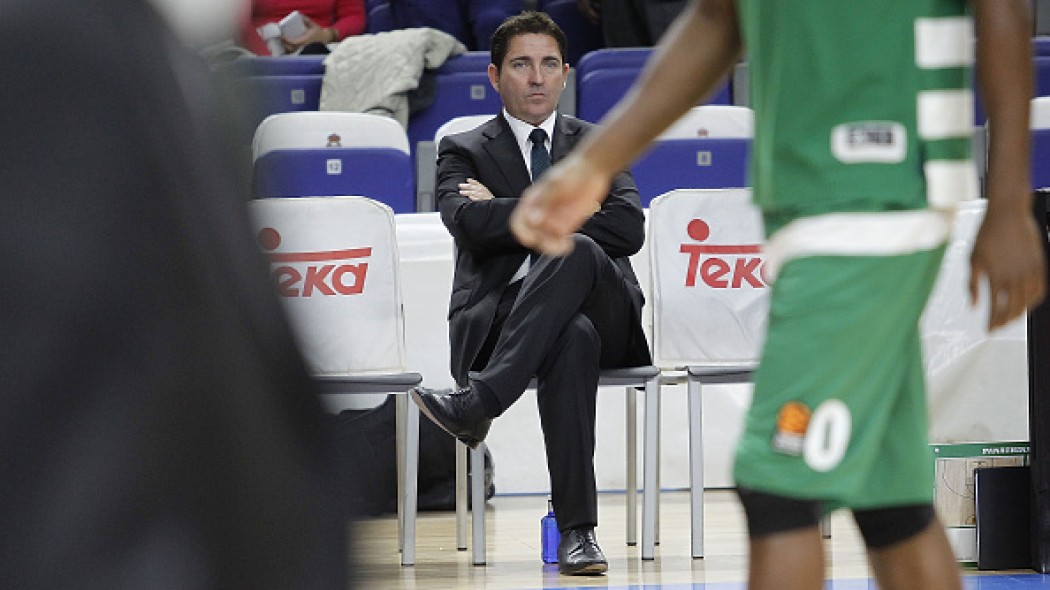
With Xavi Pascual as their leader, Panathinaikos sprinted in the final games and are back in the top four teams of the competition in the regular season, which brings the much awaited home court advantage. This is a great success for a team that changed coaches in the beginning of the season, as well as for a coach that took upon and managed a team he did not himself build last summer. Coach Pascual being on form is maybe the most important reason (even more important that the individual performance of the Panathinaikos stars) the “Clover” managed to reach this great goal on their way to returning to the F4 and subsequently to the European elite exclusive club. And, yes, I am happy to announce that the Spanish coach has his chances to become the next “face of the organisation” of the Greens.
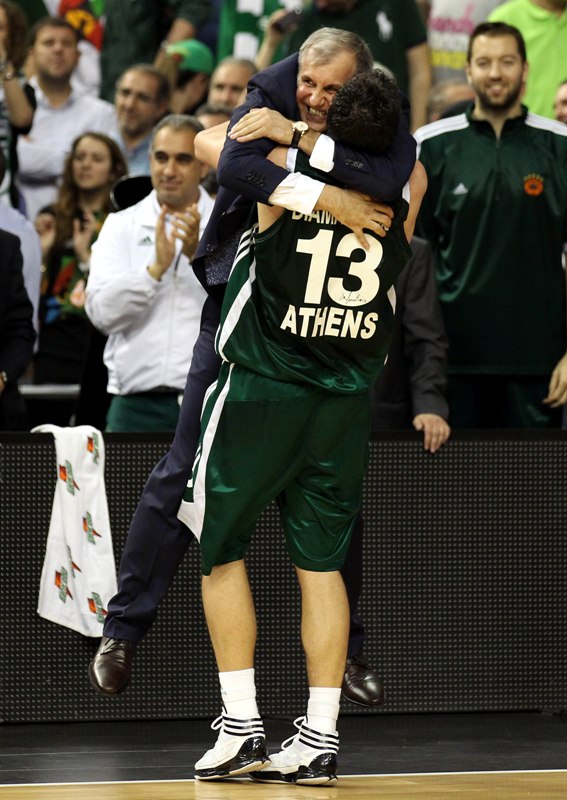
Once, this team would advance through Europe with the “godfather” as their leader on the bench, who was later succeeded by the leader that was Dimitris Diamantidis, who in turn was able to transfer to the team the magic of that era, when Panathinaikos was in an transitional period in many levels. The question that remains to be answered is whether Xavi Pascual will be able to be the new “face” of this grand organisation. Some may say that the fact alone that the Catalan coach (after only a few months on the Panathinaikos bench) managed to ask this question is a success. I will personally say that Xavi Pascual and with him the entire organisation of Panathinaikos are facing a great challenge. Playing against Obradovic and Fener down the hill, in the valley of Death (playoffs), one step before the Promised Land (F4) is carmic. We will talk about that in a few days.
Pappas as a Facilitator…? (Really, Xavi?)
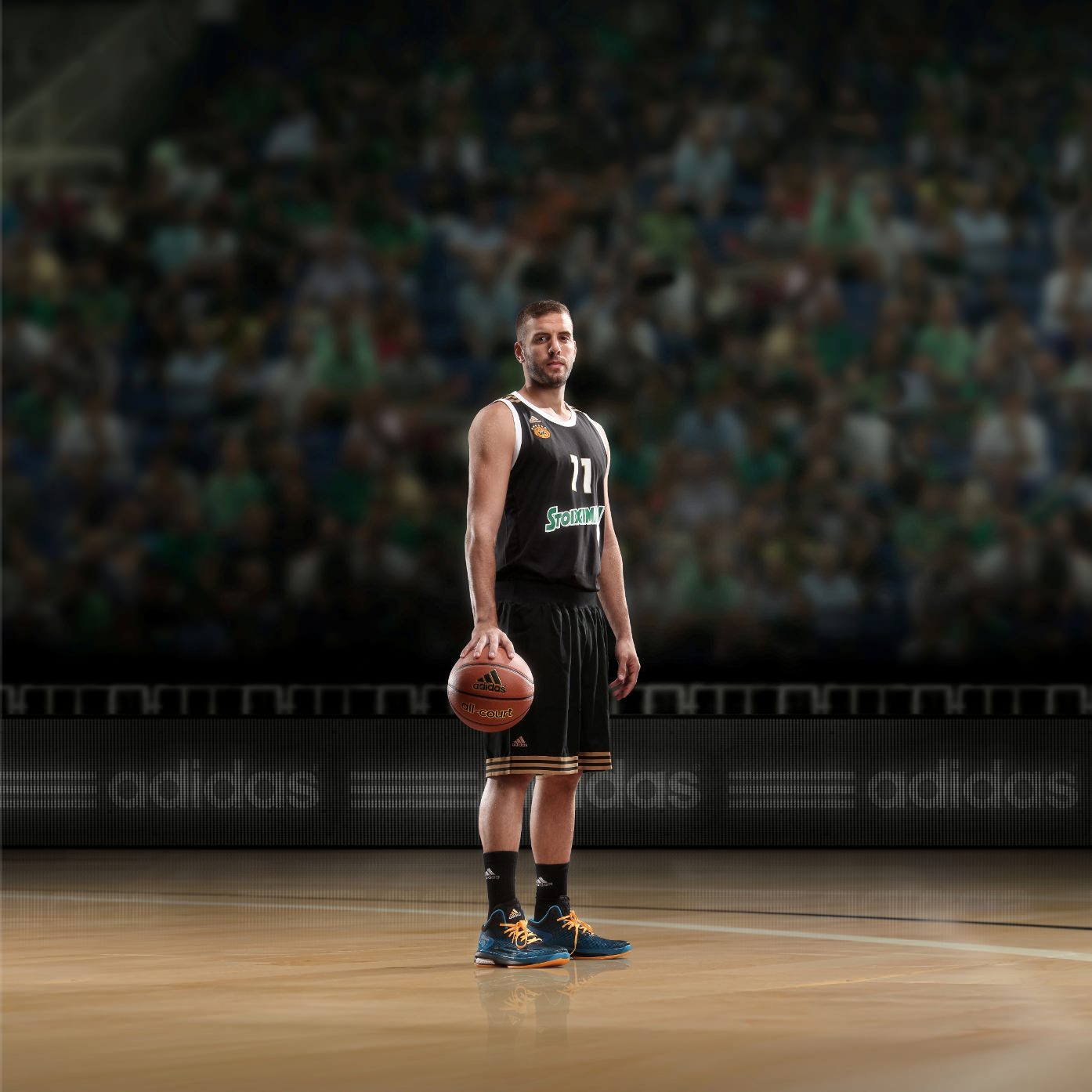
In Tel Aviv, Panathinaikos started the game with the “disease” of the team that had successive wins against elite competitors and has to cope with a road game against a team of lesser quality. Their complacency, was obvious, especially on defense, where the Greek team refused to fight, and therefore lost in positioning and subsequently many personal battles. A look at the defensive rotations will be enough. At this level, allowing your opponent to “warm up” and mainly to “believe”, automatically places you in a process to comeback from behind, which is a situation with a questionable result, as the quality of the teams is quite high.
We have repeatedly pointed out that Gist’s return, has provided Panathinaikos with much better chances to control such games, as the range of defensive choices a wider. With the American F/C, the “Clover” is able to unlock the main lane and remove the opponent’s right to play PnR in the end of the game (we saw it several times this year). In Tel Aviv, Panathinaikos turned things around without the American on the court, as coach Pascual activated another very important (which I hope we ‘ll get to see again soon, if you know what I mean…) asset of the team this year, backcourt pressure. The Spanish coach used a three guard lineup (Calathes-James-Pappas) and two high-flyers with outside shooting (Singleton-Gabriel), in order to match the absence of shooters form his backcourt. Panathinaikos has been superb in defending within the space of one pass from the ball, with their best performance being at OAKA against Real Madrid. Certainly an “elite” ability in this part for the competition, which has not been showcased. Maccabi only had one guard and “fell”, as expected. They “choked”. Next to the “deny” Calathes is able to play (which should be taught in seminars) or Jams’ ability to win one-on-one plays with ease by going high in the opponent’s execution, or hustle plays that remind scenes from “Crouching Tiger, Hidden Dragon”, Nikos Pappas’ concentration and energy made the difference.
I think that now you can all understand our persistence, after the player’s first season at OAKA, to focus on two areas that would change his status in European basketball: Defense and playmaking…
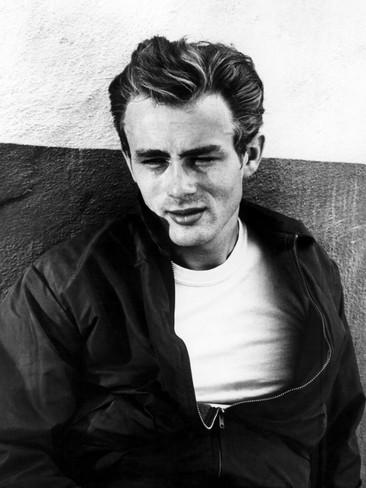
In the last 7 games, Pappas has 7.4 points (11/19 two pointers, 4/14 three pointers, 18/23 free throws), 2.4 rebounds-1.1 assists-1.6 steals and 0.6 turnovers in 19.3 minutes in the 5-2 record of the Greens. He enters the game in order to chase down De Colo, break through screens against shooters, bring hustling that would wake up the fans, play as the third guard in Small Ball situations and make Panathinaikos more aggressive on defense. However, he has mostly changed his priorities. He wants to be a “winner”. When a player of this mentality leaves the charm of “uncompromising” to James Dean, and set as his priority to work and become a complete player, which is offered to him by the title of winner, he has maybe taken the biggest of steps. It is important to continue doing that and reach success with the team. And work during the summer to develop his playmaking in order to become a complete guard. Not just a ball mover/ball stopper, but a playmaker, both on offence and defence (the term in its actual meaning includes abilities on both sides of the court). In Tel Aviv, Pappas finished the game with 5 assists, 5 steals and 3 rebounds…
The advantage of Bouroussis’ presence.
I have wanted to talk about that for a long time now, but I think that at this moment, at the end of the regular seasons, just before a great playoff series starts, especially against this team (Fener) is the right moment. Ok, I am among those who have caught themselves thinking during games and “demand” that Pascual takes him off the court, due to his performance on defense in the end of games where the Greens needed a better defensive presence, especially in one-on-one situations. I think we have all done that. It was Llull that also did this, aloud and not very kind (lol)
Apart from size and defensive rebounding, when Bouroussis enters the court, Pascual changes direction on both sides of the court and brings another element, which has been underestimated. The Greek centre wears down the opponent’s defense in the post. He finished this regular season with 124 fouls won in just 547 minutes played. More than Llull in 739 minutes. As many as Spanoulis in 677… These comparisons show how much he wears down opponents when the center from Karditsa in on the court. This is why his coach continues to give him the ball in the low post in important points in a match, when the team needs to connect from the free throw line. Smart points… Also note that Panathinaikos is the only team that has two players in the top 10 fouls won players, as Chris Singleton is just below Bouroussis. These two are also in the top 10 free throws attempted players, where they have a high percentage: 78.5 for Bouroussis and 73.9 for Singleton. Keep this in mind for the Fener series analysis..

Hoopfellas is here, as it is every year, and will be “upping its game” in the most crucial time of the year, the start of the playoffs. We have scheduled to be on-form in this exact period.
P.S: One of the best points of this difficult season for Barcelona is Alexander Vezenkov’s development, who fought and beat in the internal competition (with an eye on next season) the suffering, but always important, Doelman. Vezenkov (the player we had said that the “eternals” must keep in our country and invest in him, even if they had to “waste” a foreign player spot when he was 20 years old) is flexible, has automated execution and great awareness. He finished his Euroleague season with 67.6% on two-pointers, 47.9% on three-pointers and 84.8% on free throws. This is a player who was born in 1995. He will be in the first line of the “new blood” coach Bartsokas wants to bring to Palau Blaugrana. Check out his last game against Zaragosa…
P.S.1:Jovic’s problem brought Crvena Zvedza to their knees. Their attack is structured in a very specific way and the principles, skills and leadership of the 27 year old guard were irreplaceable. On January, when the Serbian team looked like a tank that would trample over any opponent, the international PG had 41 assists/6 turnovers in 5 matches. Thus, the best defence in the competition was left outside the playoffs. Wilbekin’s return (let me remind you of our chat on this player) was a major factor in the last games. Blatt’s team won the last game fair and square. The way things turned out, Darussafaka will give us a better series against Real Madrid.
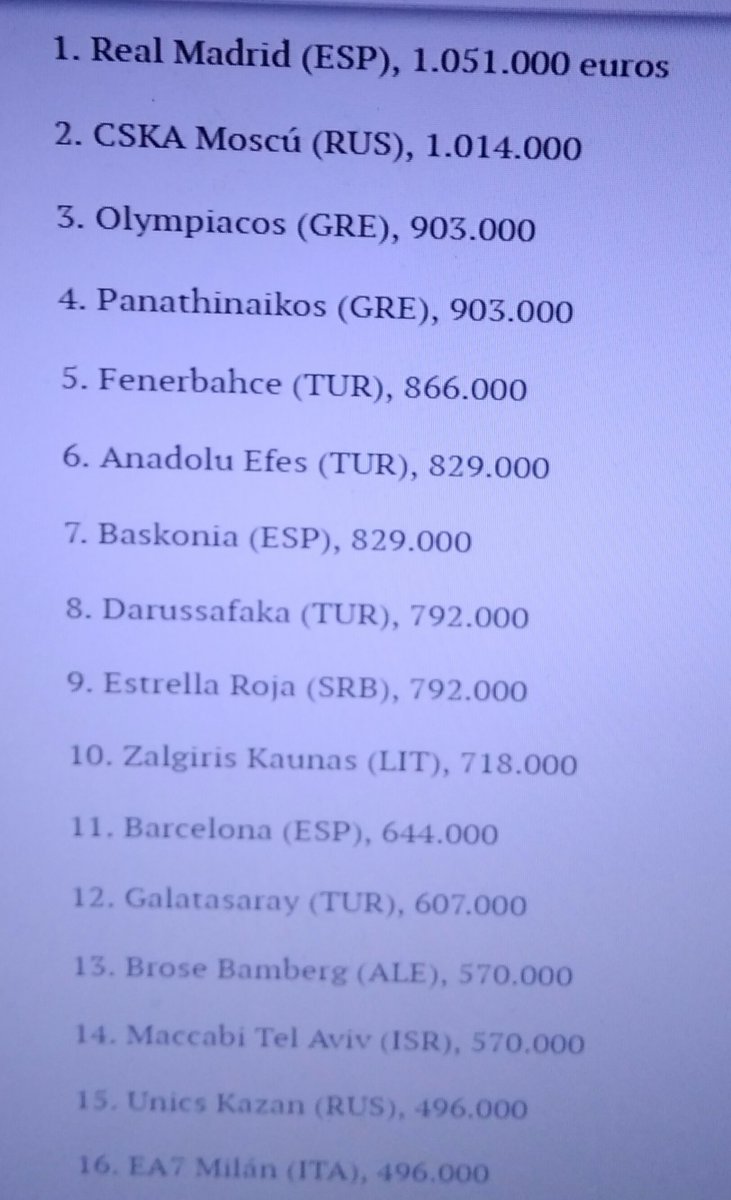
P.S.2: These are the profits of the teams based on their records in this year’s regular season. Not bad…
P.S.3: Even when Cummings has “Westbrook” numbers, Aris Thessaloniki is unable to play good basketball. It’s not just the functionality problem of this roster. This team appears to have lost their spirit…
Translated by: George-Orestis Zoumpos


